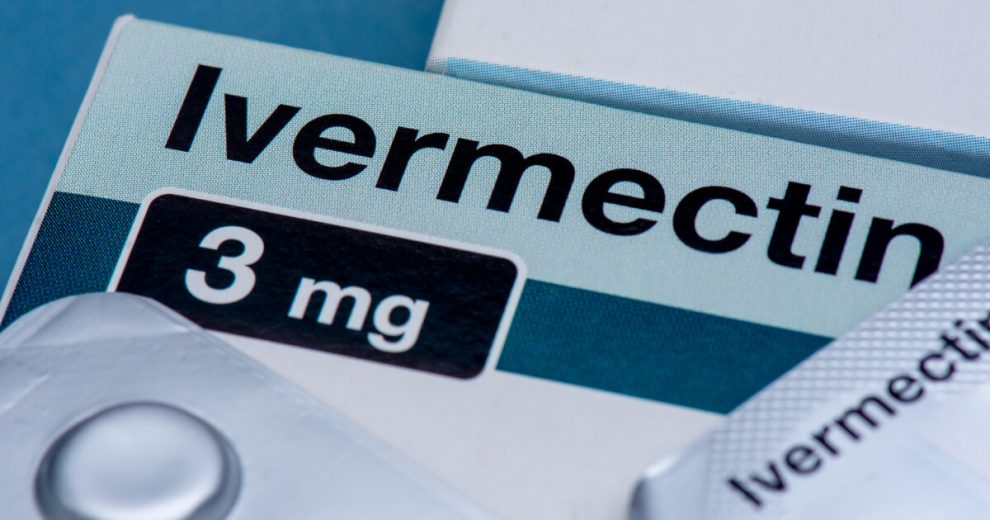KFOR, an Oklahoma news channel, reported last week that rural hospitals throughout the state were in danger of becoming overwhelmed by victims of a very specific poisoning: overdoses of ivermectin, an anti-parasite drug promoted by vaccine skeptics as a possible treatment for COVID-19.
The story went viral, and was seized upon by the mainstream media. But its central claim is substantially untrue.
The meat of the story is a series of quotes from an Oklahoma doctor, Jason McElyea, who appears to attribute overcrowding at local hospitals to a deluge of ivermectin overdoses.
“The ERs are so backed up that gunshot victims were having hard times getting to facilities where they can get definitive care and be treated,” McElyea told KFOR’s Katelyn Ogle.
The story ran under the headline: “Patients overdosing on ivermectin backing up rural Oklahoma hospitals, ambulances.” It was quickly picked up by national news outlets, such as Rolling Stone, Newsweek, and the New York Daily News. Numerous high-profile media figures, including MSNBC’s Rachel Maddow, tweeted about ivermectin overdoses straining Oklahoma hospitals—the implication being that the right-wing embrace of a crank COVID-19 cure was dangerous not only for the people who consumed it but for the stability of the entire medical system.
It was a story that appeared to confirm many of the mainstream media’s biases about the recklessness of the rubes. But it’s extremely misleading. There is, in fact, little reason to believe a purported strain on Oklahoma hospitals is caused by ivermectin overdoses; one hospital served by the doctor quoted in the KFOR article released a statement saying it has not treated any ivermectin overdoses, nor has it been forced to turn away patients.
This is yet another example of the mainstream media lazily circulating a narrative that flatters the worldview of the liberal audience, without bothering to check on any of the details. Additional reporting was sorely needed here, and has now completely undermined the central point of the story.
It’s instructive to take a closer look at what went wrong. Rolling Stone’s version of the story, for instance, quoted from McElyea’s interview with KFOR and did not provide any additional reporting or independently verified information. The image that accompanied the article on Twitter featured people waiting in long lines while wearing winter coats—which does not inspire great confidence that Rolling Stone knows what season it is in Oklahoma at present—and was summarized thusly: “Gunshot victims left waiting as horse dewormer overdoses overwhelm Oklahoma hospitals, doctor says.”
Rolling Stone has now appended an update at the top of the story, clarifying that there were 459 cases of ivermectin overdoses in the U.S. during the month of August, and though a state-by-state breakdown is not available, it would be surprising if this was straining the Oklahoma medical system. That’s because the state is currently experiencing a seven-day average of 1,528 hospitalizations due to COVID-19. If they’re running out of beds and ambulances, it’s because of the virus, not ivermectin. This was something Rolling Stone could have figured out on its own had the magazine bothered to contact any hospitals in Oklahoma, but alas.
What about the specific claim that the need to treat ivermectin overdoses had created a dearth of space for gunshot victims? In a recent article for Tulsa World, the same doctor—McElyea—was quoted as saying that he had to wait three hours to transfer a recent gunshot victim because the hospital ran out of room. But note that McElyea does not attribute the overcrowding to ivermectin overdoses—the article doesn’t mention ivermectin at all. Unsurprisingly, unvaccinated COVID-19 patients are the main culprit.
One might be tempted to blame McElyea for embellishing his story—for attributing hospital overcrowding to COVID-19 in one story and then blaming ivermectin overdoses in another. But a closer look at the KFOR story reveals something quite startling: At no point did McElyea actually come out and say that ivermectin overdoses were straining hospitals.
Here were all of the quotes that McElyea provided:
“There’s a reason you have to have a doctor to get a prescription for [ivermectin], because it can be dangerous.”
“The ERs are so backed up that gunshot victims were having hard times getting to facilities where they can get definitive care and be treated.”
“All of their ambulances are stuck at the hospital waiting for a bed to open so they can take the patient in and they don’t have any, that’s it. If there’s no ambulance to take the call, there’s no ambulance to come to the call.”
“Growing up in a small town, rural area, we’ve all accidentally been exposed to ivermectin at some time. So, it’s something people are familiar with. Because of those accidental sticks, when trying to inoculate cattle, they’re less afraid of it.”
“Some people taking inappropriate doses have actually put themselves in worse conditions than if they’d caught COVID.”
“The scariest one that I’ve heard of and seen is people coming in with vision loss.”
“You have to ask yourself, ‘If I take this medicine, what am I going to do if something bad happens?’ What’s your next step, what’s your backup plan? If you’re going to take a medicine that could affect your health, do it with a doctor on board. Make those decisions with a thoroughly vetted opinion. There’s a lot of schooling that goes into that. It’s not just something you look on the internet for and decide if it’s the right dose.”
McElyea clearly states that ivermectin overdoses have been a problem, and he claims that some hospitals are dealing with strain. But he never actually connects these two issues. It was the journalist, Ogle, who added that framing. She did not respond to a request for comment.
If McElyea has been claiming that ivermectin overdoses are overwhelming Oklahoma hospitals, it’s not actually evident from the quotes he provided. KFOR appears to be responsible for this spin. This means, of course, that if the national media outlets had called the doctor or the hospitals, they would have easily uncovered the error. Instead, they unthinkingly spread it.
It is vital for the media to communicate correct information to the public about ivermectin. While the drug is not only used for deworming horses and is in fact prescribed to humans, overdoses can cause nasty side effects. Moreover, its viability as a COVID-19 cure is highly disputed. As Reason’s Ronald Bailey noted in a recent article, there’s little evidence that ivermectin is an effective treatment for the virus. Reporters should make crystal clear that the best way to fight the COVID-19 pandemic is mass vaccination. But communicating wrong information about ivermectin overdoses works against this goal, as it is likely to convince vaccine skeptics that their skepticism is justified.
Many in the mainstream media have vigorously condemned COVID-19 misinformation, and called for social media sites to reduce its spread. But pandemic-related misinformation is not confined to the far-right fringes—readers can also encounter it in the pages of Rolling Stone and The New York Times. The Associated Press recently reported that 70 percent of calls to Mississippi’s poison hotline were from people who had taken ivermectin. This was an error: The actual figure was 2 percent.
Story cited here.
























